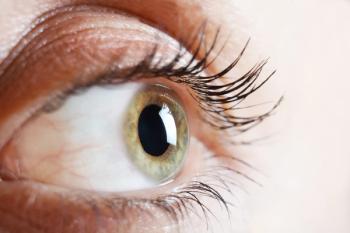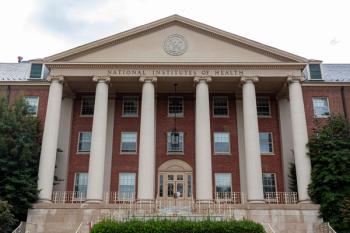
Key is to use stem cell treatments to ensure optimal outcomes for patients.

Key is to use stem cell treatments to ensure optimal outcomes for patients.

Despite its promise, RGC replacement represents a more formidable challenge.

Three of Frontera’s gene therapy product candidates have entered clinical trials since the beginning of the year.

The results are consistent with those observed, and previously published by the same group, showing benefit in age related macular degeneration models and highlights the potential value of ophNdi1 for multiple eye diseases.

According to the company, ONL1204 is a first-in-class small molecule Fas inhibitor with a mechanism of action designed to provide neuroprotection for retinal cells.

The technique could provide researchers with samples for studying AMD and other eye diseases.

A University of Houston researcher has been awarded a $1.6 million grant to help restore vision loss in patients with the rare disease that causes blindness.

Researchers developed nanoparticles able to penetrate the neural retina and deliver mRNA to the photoreceptor cells whose proper function makes vision possible.

Study results show evidence for augmentation, offering hope to patients.

A collaborative team of researchers with Oregon Health & Science University and Oregon State University are using lipid nanoparticles to target light-sensitive cells in the eye.

Viridian Therapeutics unveils positive data from its ongoing Phase 1/2 trial evaluating low dose VRDN-001 in patients diagnosed with TED.

According to the company, gene and protein expression of cytokines and chemokines after latanoprost+benzalkonium chloride treatment administered via the company’s microdose formulation decreased inflammation from preserved glaucoma solutions compared to drops.

FT-001 is administered by a one-time injection into the subretinal space of the eye that delivers a functional copy of the human RPE65 gene to the nuclei of the patient’s retinal cells.

The technique provides model for studying genesis of age-related macular degeneration and other eye diseases.

Janey Wiggs, MD, PhD, associate chief of Ophthalmology Clinical Research at Massachusetts Eye & Ear discusses genetics of glaucoma, providing an overview of what is known about genes and gene mutations that can cause or contribute to glaucoma.

According to a news release, Opus will advance preclinical development programs for BEST1– and RHO-related retinal diseases. The deal expands the company’s addressable patient population for its novel treatments for rare inherited retinal diseases.

The Cell and Gene Therapy Center will combine a team of 100 researchers to capitalize on the company’s 35 years of cell and gene therapy experience.

According to researcher, the treatment offers improved retinal sensitivity, visual function, and mobility.

OPGx-001 is Opus’ first program to enter clinical evaluation and is designed to address vision loss due to mutations in the LCA5 gene, which causes one of the most severe forms of early-onset blinding disease Leber congenital amaurosis.

Investigators who are examining end-stage disease see significant visual recovery in 2 patients.

The therapy offers improved retinal sensitivity, visual function, as well as improvements in mobility.

Investigators who are examining end-stage disease see significant visual recovery in 2 patients.

The novel genetic engineering approach, tested in mice and laboratory-grown nerve and light-receiving cells, will initially have research applications.

According to National Institutes of Health/National Eye Institute researchers, the study may help lead to gene therapy for rare inherited blinding disease.

Replay is launching Eudora, an HSV gene therapy company that will target genetic retinal diseases.